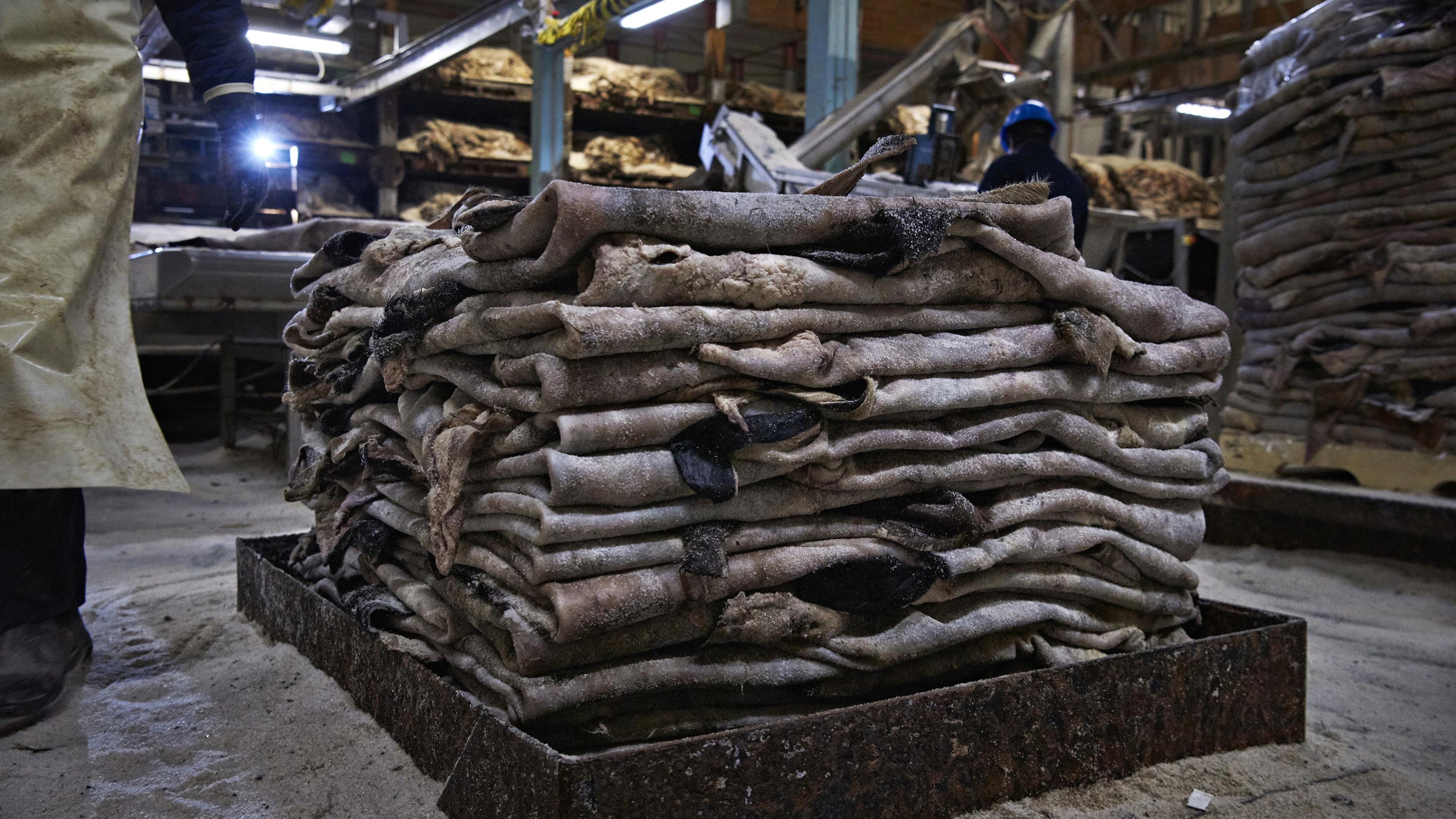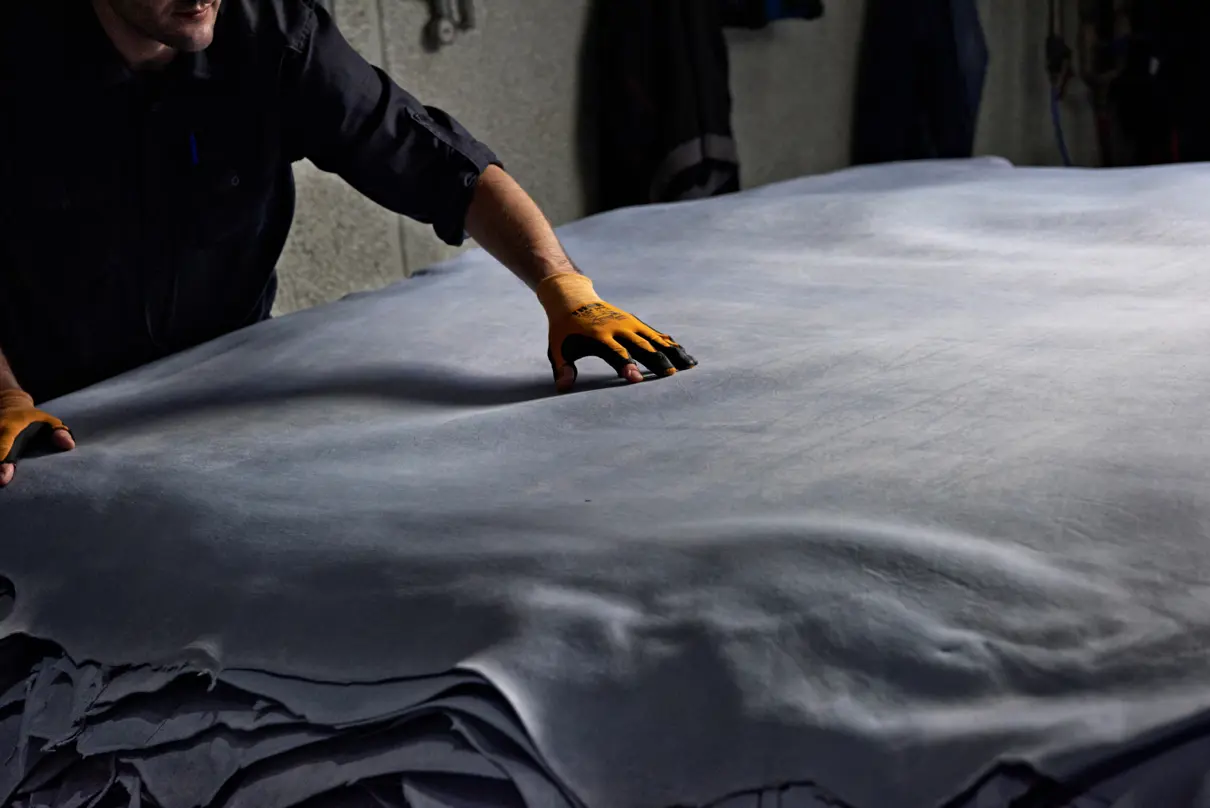We’re in the business of refining nature’s own raw materials. Hides are the biproduct of the dairy and meat production. By turning it into leather, we’re creating new value chains that benefit farmers and high-end fashion brands as well as many industries in between.
And leather lasts. Unlike other materials, leather is durable. It stands the test of time; it even gets more beautiful from use.
But circular thinking doesn’t stop here.
The tanning process generates biproducts too. The collagen we extract from the flesh of the hide is sent on and used in vitamins, cosmetics and animal feed. In this way, the biproducts of our production are upcycled as key ingredients in other industries.

Leaving a small footprint
When it comes to minimising the environmental impact of our production, Scan-Hide is among the companies that set the standard in the industry.
We comply with Danish legislation, which define the strictest criteria in the world for wastewater and the use of chemicals. And we work closely with our suppliers to deliver on the CO2 commitment that we share: to reduce the emissions from our production by 50% by 2030 and become CO2 neutral by 2050.
Gold certification
The Leather Working Group (LWG) is a not-for-profit membership organisation for stakeholders across the leather supply chain that certifies leather manufacturers according to their environmental compliance and performance capabilities.
